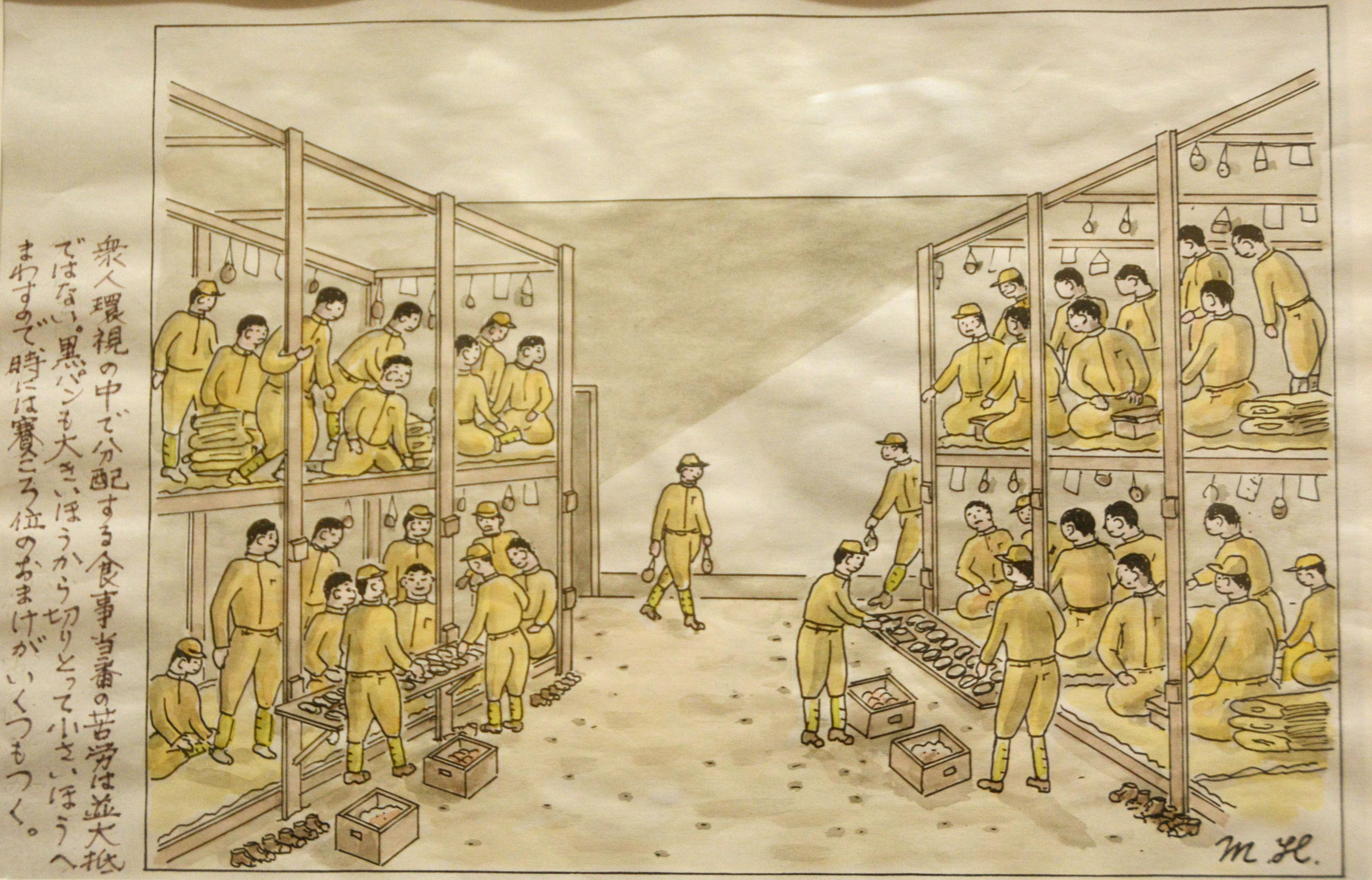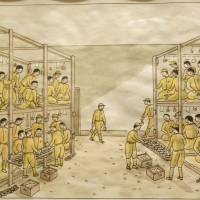A city on the Sea of Japan coast said Tuesday it will recommend that mementos and records of prisoners of war detained in the Soviet Union after World War II be included in UNESCO's Memory of the World Register.
The city of Maizuru in Kyoto Prefecture was one of the ports through which both POWs and civilians were repatriated after the war.
It says it aims to have 570 items, including memoirs and drawings composed by the former inmates of Siberian labor camps and the lists of those repatriated aboard Japan-bound ships for Maizuru, recognized by the U.N. Educational, Scientific and Cultural Organization in 2015.
The exhibits at the Maizuru Repatriation Memorial Museum chronicle the arrival of the former POWS and other repatriates from overseas between 1945 and 1956.
According to the museum, about 660,000 Japanese nationals, including 455,000 ex-POWs from Siberia, were repatriated via Maizuru port between 1945 and 1958. Others came from China, the Korean Peninsula and islands in the South Pacific.
The government estimates about 600,000 Japanese soldiers were held in labor camps in Siberia and Mongolia after the war. About 55,000 died due to forced labor, harsh living conditions and malnutrition.
In addition to Maizuru, the central government and the city of Minamikyushu in Kagoshima Prefecture have also made recommendations for listings on the UNESCO register.
The government has sought recognition for old documents kept at Toji, a Kyoto Buddhist temple, while Minamikyushu has put forward letters written by World War II kamikaze pilots heading for suicide attacks kept at Chiran Peace Museum.
The Memory of the World program aims to preserve historical archives and other precious items. Already on its roster are the 1789 Declaration of the Rights of Man and of the Citizen issued during the French Revolution and the diaries of Anne Frank from World War II, submitted by the Netherlands.




